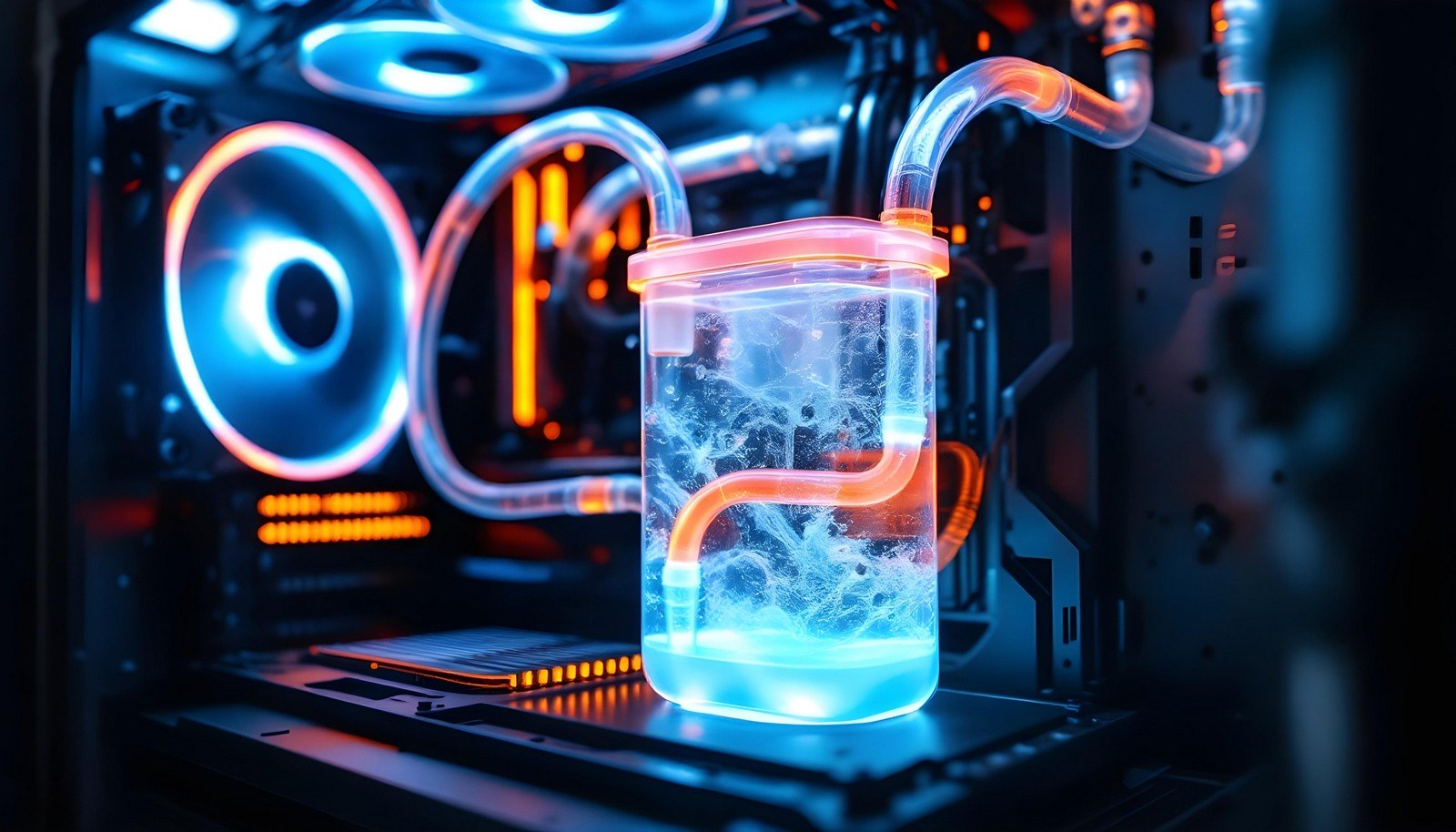Liquid Cooling System

Quick Navigation:
- Liquid Cooling System Definition
- Liquid Cooling System Explained Easy
- Liquid Cooling System Origin
- Liquid Cooling System Etymology
- Liquid Cooling System Usage Trends
- Liquid Cooling System Usage
- Liquid Cooling System Examples in Context
- Liquid Cooling System FAQ
- Liquid Cooling System Related Words
Liquid Cooling System Definition
A liquid cooling system is a technology used to dissipate heat from electronic devices, primarily computers and servers. It involves circulating a thermally conductive liquid through tubes and components, transferring heat away from critical parts such as CPUs and GPUs. These systems typically include a pump, radiator, cooling block, and reservoir, working together to maintain optimal operating temperatures. Compared to air cooling, liquid cooling offers superior efficiency and quieter operation, especially for high-performance setups.
Liquid Cooling System Explained Easy
Imagine your computer is like a hardworking person running a race—it gets very hot! Instead of blowing air (like a fan), we give it a "drink" of cool water that absorbs the heat and carries it away, helping it stay cool and perform better. That’s what a liquid cooling system does for a computer.
Liquid Cooling System Origin
Liquid cooling systems trace their origins back to the 1980s, when hobbyists and engineers experimented with alternative cooling methods for high-performance electronics. Over the years, they evolved from niche applications into mainstream technology, particularly with the rise of gaming and high-power computing in the 2000s.
Liquid Cooling System Etymology
The term "liquid cooling system" combines "liquid," referring to the coolant used, and "cooling system," describing the mechanism designed to reduce heat.
Liquid Cooling System Usage Trends
With the increasing demand for high-performance computing, liquid cooling has become a preferred choice for gamers, data centers, and professionals. The trend has accelerated with advancements in overclocking and compact, modular designs, making liquid cooling more accessible and reliable.
Liquid Cooling System Usage
- Formal/Technical Tagging:
- Thermal Management
- Computer Cooling
- Electronics Cooling - Typical Collocations:
- "liquid cooling radiator"
- "custom liquid cooling setup"
- "CPU liquid cooling"
- "efficient thermal management with liquid cooling"
Liquid Cooling System Examples in Context
- A gaming PC with a liquid cooling system runs quieter and stays cooler under heavy workloads.
- Data centers use advanced liquid cooling systems to manage heat and reduce energy consumption.
- High-performance workstations often include liquid cooling for stable operation during intensive tasks like video rendering.
Liquid Cooling System FAQ
- What is a liquid cooling system?
A liquid cooling system is a method for dissipating heat using a circulating liquid to cool electronic components. - Why is liquid cooling better than air cooling?
Liquid cooling is quieter, more efficient, and better suited for managing high heat loads. - What are the main components of a liquid cooling system?
The main components include a pump, radiator, cooling block, reservoir, and tubes. - Do I need a liquid cooling system for my computer?
It depends on your use case. Gamers and professionals with high-power PCs benefit most from liquid cooling. - Is liquid cooling risky?
Modern systems are designed for safety, but improper installation or maintenance could cause leaks. - How often should I maintain my liquid cooling system?
Maintenance depends on the system, but it typically requires periodic checks every 6-12 months. - Can liquid cooling reduce my energy bills?
Yes, by improving thermal efficiency, it reduces the workload on fans and the overall energy required for cooling. - What liquid is used in these systems?
Specialized coolants or distilled water mixed with anti-corrosion agents are commonly used. - Are liquid cooling systems noisy?
No, they are generally quieter than air cooling systems. - Can I install a liquid cooling system myself?
Yes, many systems are user-friendly, but custom setups may require advanced skills.
Liquid Cooling System Related Words
- Categories/Topics:
- Computer Hardware
- Gaming PCs
- Overclocking
- Data Center Cooling
Did you know?
In 2015, a data center in Finland used seawater as a cooling medium for its liquid cooling systems. This innovative approach drastically reduced energy costs and highlighted the potential of eco-friendly cooling solutions.
PicDictionary.com is an online dictionary in pictures. If you have questions or suggestions, please reach out to us on WhatsApp or Twitter.Authors | Arjun Vishnu | @ArjunAndVishnu

I am Vishnu. I like AI, Linux, Single Board Computers, and Cloud Computing. I create the web & video content, and I also write for popular websites.
My younger brother, Arjun handles image & video editing. Together, we run a YouTube Channel that's focused on reviewing gadgets and explaining technology.



Comments powered by CComment